STREETWISE
INCORPORATING
YOUR BUSINESS
From Legal Issues to Tax Concerns, All You
Need to Establish and Protect Your Business
Michele Cagan, C.P.A.

Avon, Massachusetts
CONTENTS
Appendix B: State Business Development Office
Contact Information
Dedication
To my mom, and to my best boy and best friend.
Introduction
For more than thirteen years I have worked with all sorts of small-business clients. Back in the beginning, everyone I dealt with was incorporating because that was really the only way to ensure limited liability protection. Then, with the advent of the LLC and the LLP, corporations began to lose favor. Now theyve come back around to be the entity of choice for many small businesses looking for that same legal protection with a side order of flexible tax-planning capabilities.
Whether you already have a business thats structured in some other way or are just launching your first enterprise, one of the available corporate entities may be the best choice for your company. It doesnt matter what industry you are in or how long youve already been in business: Every company is vulnerable to lawsuits; every successful business owner has to pay taxes; and almost every company needs outside funding to help it grow. Corporations offer you the most options, the best ways to minimize tax bites, and the simplest way to bring in investors without losing control. Both you and your company could very well benefit in the long run through the simple process of incorporation. And, contrary to popular belief, it isnt that hard to do.
Incorporating your business really is a simple step-by-step process. When you have all the steps laid out for you, as they are in this guide, you can create a secure and profitable corporation, no sweat. Streetwise Incorporating Your Business tells you which steps you can take on your own and which are better taken with professional guidance. From choosing the most advantageous corporate entity to filing the legal paperwork to paying out the first dividend, this book will show you how its all done.
It takes guts to start a business, sweat to make it a success, and a lockbox to preserve those hard-earned profits. The marketplace is increasingly competitive, and the economic climate makes it harder than ever to hold on to your wealth. Starting and growing a profitable business is tough, but holding on to everything youve built can be even harder. Incorporating your business gives you an extra layer of protection for both your personal nest egg and your burgeoning business, leaving your money in your hands. This book gives you all the tools you need to create a rock-solid corporation, one that will help you to grow and protect your fortune.
Getting Started
PART
Chapter 1
Making the Choice
to Incorporate
Chapter 2
Meet the Different
Corporate Types
Chapter 3
The Best Things
About Incorporating
Chapter 4
Get Your Business
Ready to Go
How Structure Impacts Your Business
Like the foundation upon which your house is built, a business structure provides support and framework for your business. This structure, or entity, is the legal form of your company, but it comes with a wide-ranging set of implications beyond the legal ones. Among other things, the entity you choose for your company directs the following:
 How many owners your business can have
How many owners your business can have
 The type of owners your business can have
The type of owners your business can have
 Your (and your co-owners) personal liability for business debts
Your (and your co-owners) personal liability for business debts
 Your companys liability for your (and your co-owners) personal debts
Your companys liability for your (and your co-owners) personal debts
 What type of funding is available to the business
What type of funding is available to the business
 How your business is perceived by others
How your business is perceived by others
 How much paperwork you will have to do
How much paperwork you will have to do
 Who pays the income taxes
Who pays the income taxes
 How much income tax will be paid
How much income tax will be paid
Many novice business owners overlook the importance of entity choice; in fact, many dont even actively make a choice before jumping into business, and they end up stuck with the most basic (and often least protective) structures. But even those entrepreneurs who have made painstaking decisions regarding their business entities may find themselves in the position of needing to make a change.
While every business entity can be changed after the fact, that often involves extra paperwork and sometimes invokes a tax consequence as well. Those pitfalls of switching can be managed with some careful planning, but choosing the best entity for your businesseither at start-up or after your company has grown enough to merit a change in entityin the first place can help you avoid potential difficulties.
A Natural Progression
When it comes to small business, there is a typical pattern of progression when it comes to structure. Many novice entrepreneurs, whether they have planned to start a business or just slid into it without really knowing whats what, start off as sole proprietors (when they are flying solo) or as general partnerships (when at least two people are involved). These business structures are the default settings: If you do nothing, these are the entities you will have created. As you might expect, these entities are the least beneficial in virtually all ways except the simplicity of formation.
Once business owners get into the swing of thingsread this as start making money, paying taxes, and owning something too good to lose they begin to think about better ways to manage their companies. They may search around online for advice or talk to their CPAs, attorneys, or other professional advisors. Whichever path they take, they will likely end up transforming their companies into other entities, usually limited liability companies (LLCs) or S corporations.
The final destination comes into play when the company has grown beyond expectations, pulling in revenues measured in (at least) millions of dollars each year. At that point, most businesses become C corporations, and they live that way forevermore.
Do You Have a Business?
Sometimes, a person can be in business and not fully realize it. Sound crazy? Think about this. A man employed at a plumbing supply company does a little bit of light plumbing work on the side. Thats a business. Or a secretary types up term papers for her sons classmates for a small fee. Thats a business.
Heres the basic rule. If you perform a service for money, or sell something for more than you originally paid, and you are not acting as an employee for someone else, you have engaged in a business transaction for your own business.
Before the First Transaction

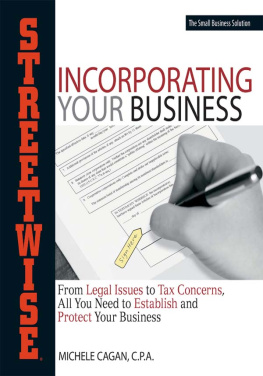
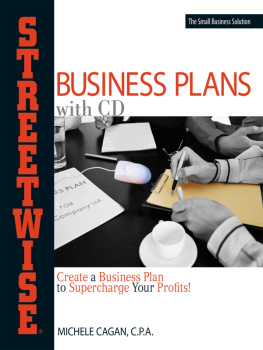


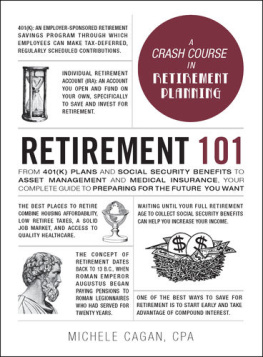


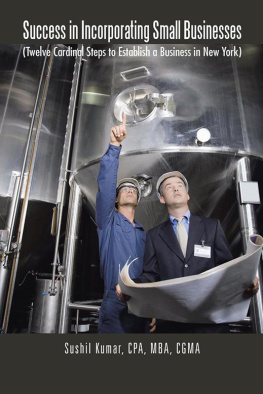
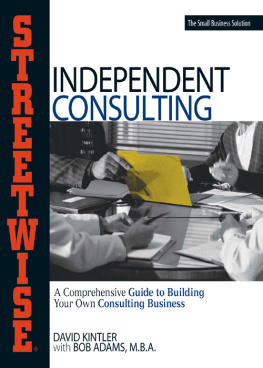
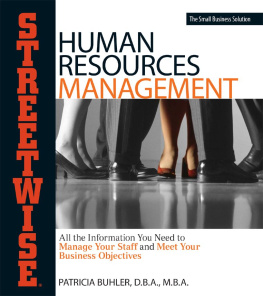

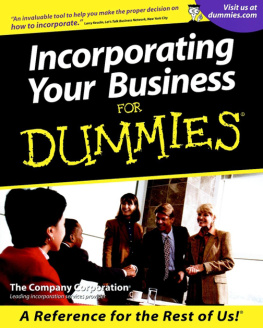


 How many owners your business can have
How many owners your business can have